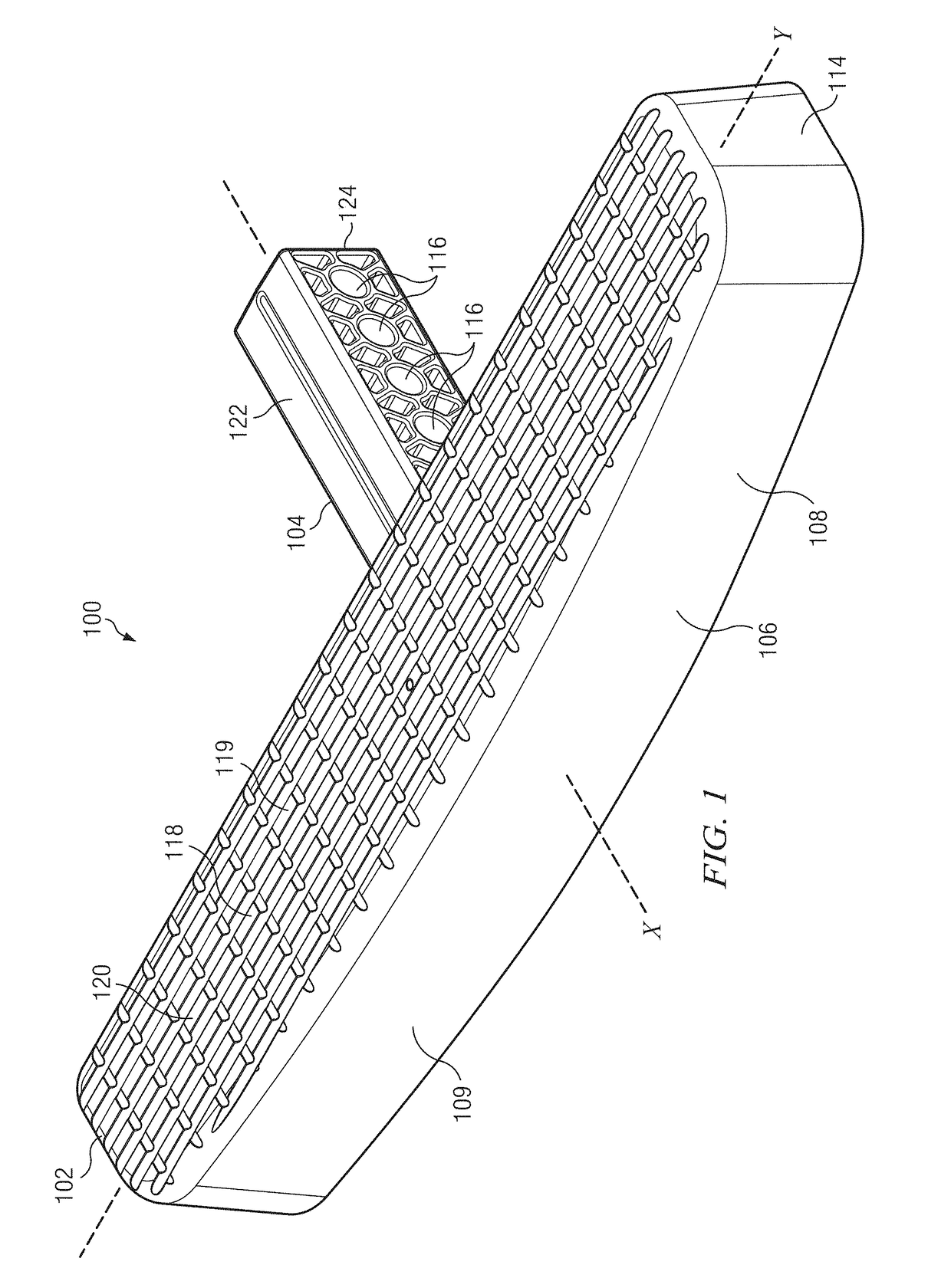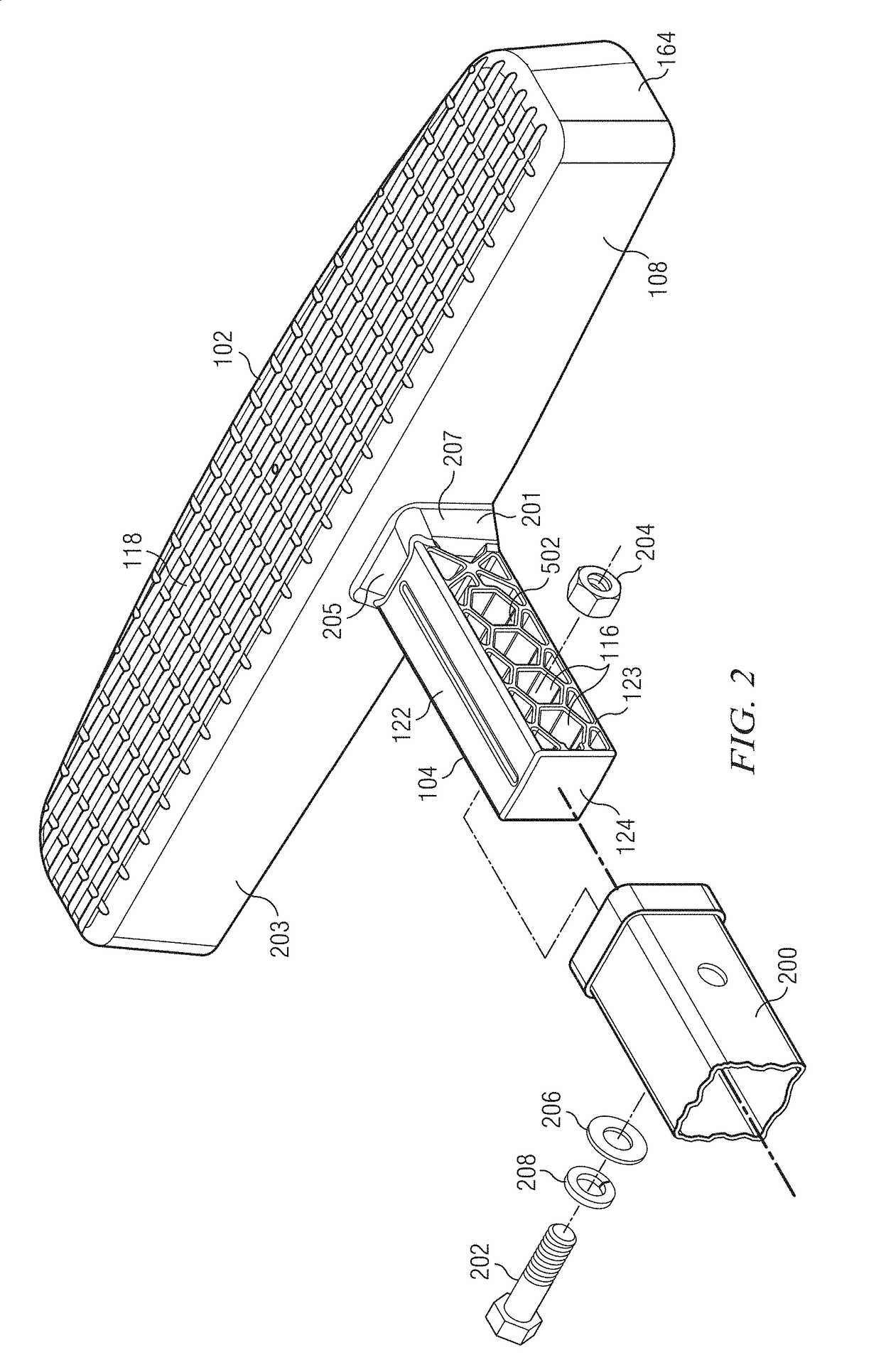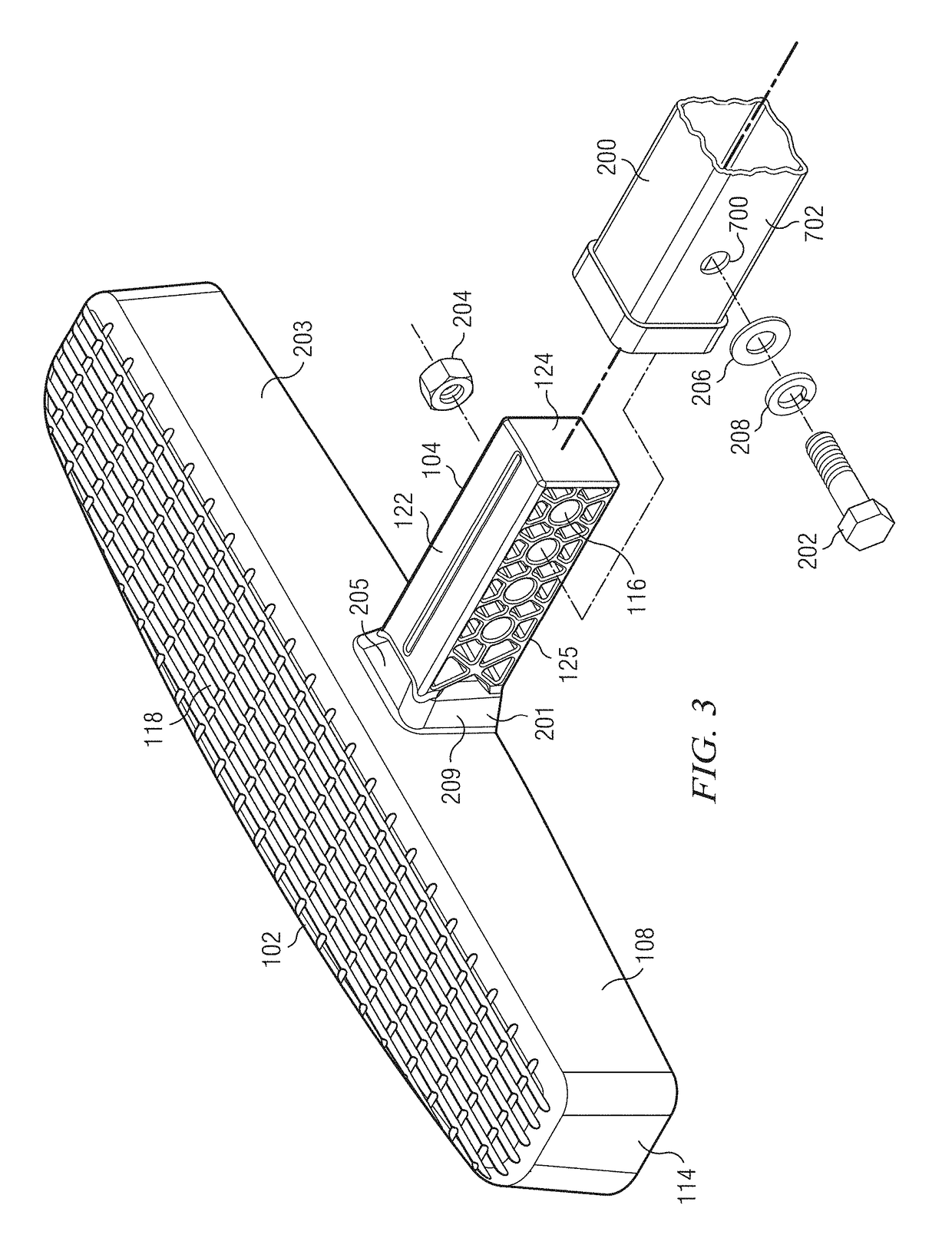Two shot injection molded vehicle hitch step
a technology of injection molding and vehicle, which is applied in the direction of transportation and packaging, towing devices, and other domestic articles, can solve the problems of limited width of the hitch step, limited impact resistance of the rear of the vehicle, and prior hitch steps that add considerable weight to the vehicle, so as to increase the protection of the rear bumper and increase the friction surface
- Summary
- Abstract
- Description
- Claims
- Application Information
AI Technical Summary
Benefits of technology
Problems solved by technology
Method used
Image
Examples
Embodiment Construction
[0022]The present invention provides a hitch step for insertion into a hollow receiver type hitch on a vehicle. In the embodiment shown in FIG. 1, a hitch step, generally indicated at 100, includes a step body 102 and a post 104. Hitch step 100 is formed by injection molding in a two-shot process. The post 104 is formed from a first shot component molded from a polymer having a flexural modulus of at least 300,000 psi at 23° C. The polymeric compound generally has a high impact strength, ideally one that is rated as “No-Break” at 23° C. according to the Charpy Unnotched impact test criteria. All properties listed are for an ambient temperatures of 23° C. unless otherwise noted. The material can be a thermoplastic polyester blended with a thermoplastic polycarbonate. In one embodiment the first shot component is a polycarbonate (PC) / polybutylene terephthalate (PBT) polyester blend that has a flexural modulus of 305,000 psi at 23° C. and an impact strength of NB at 23° C. Key properti...
PUM
| Property | Measurement | Unit |
|---|---|---|
| flexural modulus | aaaaa | aaaaa |
| width | aaaaa | aaaaa |
| weight | aaaaa | aaaaa |
Abstract
Description
Claims
Application Information
 Login to View More
Login to View More - R&D
- Intellectual Property
- Life Sciences
- Materials
- Tech Scout
- Unparalleled Data Quality
- Higher Quality Content
- 60% Fewer Hallucinations
Browse by: Latest US Patents, China's latest patents, Technical Efficacy Thesaurus, Application Domain, Technology Topic, Popular Technical Reports.
© 2025 PatSnap. All rights reserved.Legal|Privacy policy|Modern Slavery Act Transparency Statement|Sitemap|About US| Contact US: help@patsnap.com



